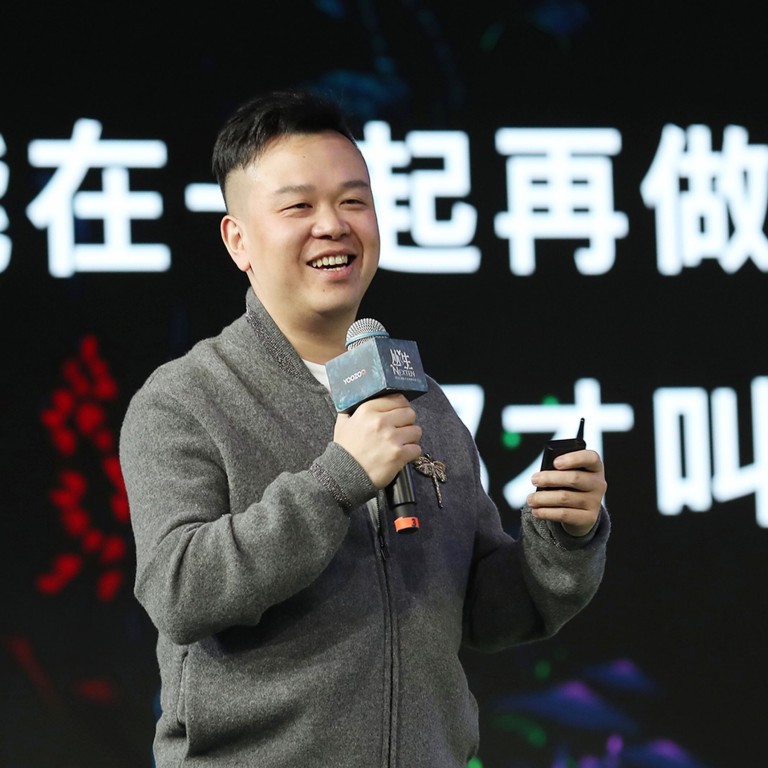
Investigated, jailed, killed: China’s young gaming tycoons suffered in 2020, as did their companies
- Three of China’s billionaire gaming executives have faced investigation, criminal conviction and death, adding to the tumult of the country’s gaming industry
- Lin Qi, an executive producer for Netflix’s The Three-Body Problem, drew international attention when he died on Christmas from a suspected poisoning
A group of Chinese gaming industry executives in their 30s, who had shared a rise in fame and fortune to become the country’s youngest billionaires in recent years, have suffered setbacks and misfortunes in 2020 in another sign of the unpredictability of China’s business world.
In the latest case, Wang Yue, the 37-year-old billionaire founder of Shanghai Kingnet Network, was sentenced by a Shanghai court to five-and-a-half years in prison for manipulating stock prices, the company said in an announcement on December 25.
On the same day, Lin Qi, the 39-year-old founder of game company Yoozoo, died in hospital after a suspected poisoning by a colleague. Last week, 32-year-old Wang Jian, the millennium chairman of Jinke Culture, was put under investigation for insider trading, the company said in a stock market filing on December 21.
While the three high-profile cases are not related, the three men are all members of a generation of young gaming industry executives, along with a few others born in the 1980s such as Liu Liang at U9 Game and Wang Shijun at Diandianle, who followed similar paths to becoming billionaires and who once hoped to challenge incumbent gaming giants Tencent Holdings and NetEase.
Yoozoo’s gaming tycoon Lin dies at 39 as police probe poisoning case
They were the darlings of investors, riding high on the exuberance around the future of mobile and browser-based games at the time. One common method of benefiting from gaming in the mid-2010s was using reverse takeovers of struggling listed companies, which is how Kingnet, U9 Game and Yoozoo went public.
Amid this boom in gaming, China’s stock market regulator banned takeovers of listed companies in 2016, stopping the back-door listings that had become so popular.
The option for a more traditional initial public offering was also seemingly removed for gaming companies. The last gaming company to go public in China was G-bits Network Technology in 2017. In September, miHoYo, the developer behind the smash-hit game Genshin Impact, decided to withdraw its IPO application after waiting nearly three years for approval.
Some companies sought other ways of capitalising on the rising popularity of gaming. Jinke Culture, originally a peroxide company, used a private placement sale in 2017 to raise US$1 billion to buy a majority stake in developer Outfit7 Investment, the owner of the popular mobile game Talking Tom Cat.
In the years since, Beijing’s strict control over new video games has only made it more difficult for gaming companies to sustain revenue growth, putting an end to the industry gold rush.
Liao Xuhua, an analyst for Beijing-based consultancy Analysys International, said the group of young gaming tycoons are actually victims of China’s capital market.
“These examples point to problems of the capital market,” he said. “The core issue here is that we are still clearing the risks accumulated in deals made in 2015.”
China’s video games industry continues to boom post-pandemic
Now these companies are facing multiple problems that have been building for a long time, Liao said. While some company executives could not “withstand the temptation of capital” and became busy wheeling and dealing instead of focusing on games, he said, others engaged in reckless acquisitions that would later hurt their companies’ reputations.
Other recent troubles at these companies also hinted at poor corporate governance.
Before the conviction of the company’s founder this month, Kingnet chief financial officer Chen Yongcong and the board’s former supervisor Lin Bin were arrested on charges of “violating faith to harm the interests of a listed company” last year, although they were both later released without charge.
In the case of Yoozoo, the chief executive of company affiliate The Three-Body Universe, Xu Yao, was suspected of poisoning Lin, according to China Economic Weekly, a magazine affiliated with state-run newspaper and Communist Party mouthpiece People’s Daily. Xu did not respond to an inquiry sent to his LinkedIn account.
These companies also saw their competitiveness take a hit in recent years, according to their financial reports. Kingnet saw revenue shrink to 812 million yuan (US$124.2 million) in the first half of the year, continuing a precipitous fall from 2017, when it made 1.3 billion yuan during the same period.
Yoozoo has continued to grow, but its gross profit margin narrowed from 70 per cent in 2014 to 31 per cent in 2019 amid fierce competition, according to the company’s financial reports.
Zheng Jintiao, co-founder of media outlet Gamer Boom, said that some of these gaming upstarts are struggling to produce good games for a market where gamers’ tastes have matured and expectations have risen.
“Purely dumping resources on games can no longer work,” Zheng said.

